Ruth Downie - Tabula Rasa
Здесь есть возможность читать онлайн «Ruth Downie - Tabula Rasa» весь текст электронной книги совершенно бесплатно (целиком полную версию без сокращений). В некоторых случаях можно слушать аудио, скачать через торрент в формате fb2 и присутствует краткое содержание. Год выпуска: 2014, ISBN: 2014, Издательство: Bloomsbury USA, Жанр: Исторический детектив, на английском языке. Описание произведения, (предисловие) а так же отзывы посетителей доступны на портале библиотеки ЛибКат.
- Название:Tabula Rasa
- Автор:
- Издательство:Bloomsbury USA
- Жанр:
- Год:2014
- ISBN:9781620403235
- Рейтинг книги:5 / 5. Голосов: 1
-
Избранное:Добавить в избранное
- Отзывы:
-
Ваша оценка:
- 100
- 1
- 2
- 3
- 4
- 5
Tabula Rasa: краткое содержание, описание и аннотация
Предлагаем к чтению аннотацию, описание, краткое содержание или предисловие (зависит от того, что написал сам автор книги «Tabula Rasa»). Если вы не нашли необходимую информацию о книге — напишите в комментариях, мы постараемся отыскать её.
Tabula Rasa — читать онлайн бесплатно полную книгу (весь текст) целиком
Ниже представлен текст книги, разбитый по страницам. Система сохранения места последней прочитанной страницы, позволяет с удобством читать онлайн бесплатно книгу «Tabula Rasa», без необходимости каждый раз заново искать на чём Вы остановились. Поставьте закладку, и сможете в любой момент перейти на страницу, на которой закончили чтение.
Интервал:
Закладка:
Moments later Enica had done her duty and Ruso had realized that she must be the old man’s wife, and Branan’s mother, and that was perhaps why she was less than thrilled at her husband inviting the daughter of his old flame to eat with them. By the time he had worked this out he found himself with his own beer and nursing a thick wooden bowl filled with stew at the temperature of molten lava.
He had assumed the woman would go on to serve everyone else, but instead she served only Senecio and then stepped back. Senecio gestured to him to begin. Evidently the foreign guest was expected to eat first.
Ruso glanced around. He had attended all manner of dinner parties, most of them reluctantly, but never before had he been expected to put on a display of eating for the rest of the diners. Tentatively, he licked the bottom of the spoon.
A child’s voice declared, “He doesn’t like it.”
Someone said, “Sh!”
“Give him a chance!” hissed Branan.
He glanced at Tilla. She made a small scooping motion with one hand. Was this some sort of a test? Tilla had urged him to eat. He must not let her down. He lifted the spoon again.
There was a soft shuffle of feet and fabric as his audience shifted to get a better view, and he was struck by the thought that they might be trying to poison him.
The edge of the spoon seemed cooler now.
There was a brief moment between the tasting and the burning, a further brief moment in which he thought that a gulp of air would help, and then the pain in his mouth was gnawing its way down his throat and into his chest.
“It’s very good!” he gasped. “Very-” He must have snatched at his beer, because much of it seemed to miss his mouth and course down his chin.
“Very good!” he repeated, wondering if the Britons knew the story of the Roman prisoner who had died after being force-fed with molten gold.
“He likes it!” declared someone.
He saw smiling faces at last. The child who said, “He made a mess!” was ignored, and Enica busied herself serving everyone else. So he probably hadn’t been poisoned, then. But if he thought the difficult part was over, he was wrong. Senecio had been softening him up.
“We hear, healer, that you are a friend of the emperor.”
Gods above, how had that rumor reached the ears of an old man in a mud hut? It was the last thing Tilla would have told anyone, even if it were true. And it was the last thing he wanted these people to believe. Ruso emerged from another swig of beer and said, “Not exactly, sir. We have met.”
“I have another fine and handsome son waiting for me in the next world, sent there by the emperor’s men during the troubles.”
“I am sorry to hear that, sir,” said Ruso, who was not supposed to have seen the security report.
“My family and I would like to know,” said Senecio, “why the emperor wants to build a wall across our land.”
A list of possible answers scurried around Ruso’s mind and were chased away by the burning in his throat. The official reason, to separate the Romans from the barbarians, made no sense. There were barbarians on both sides, and army posts too. To collect customs tolls? To defend the land? To fix the limits of the empire? To give the troops something to do? To mark Hadrian’s footsteps in a province where a new city-his usual legacy-would be as useful as a straw spear? None of it sounded convincing in the face of a man who had lost a son and half his farm, and he certainly wasn’t going to repeat the common view amongst the men, who believed the wall was an admission that Britannia would never be fully brought under Roman control.
“It is the fault of the Northerners,” put in Tilla. “If they stayed at home and kept their hands off other people and their property, there would be no need for a wall.”
Senecio nodded. “Your family was a great loss to us all, child.” He turned to Ruso. “And you, do you think the great Emperor of Rome was troubled by the Northerners killing our people and stealing our cattle?”
Ruso doubted that Hadrian was in the least bit troubled, but he was not going to say so. “If it stops the raiding, it will be a useful thing for everyone.”
“Oh, it’ll stop that all right,” put in Conn. “It’ll stop farmers getting their animals to pasture, and families from visiting, and traders from going to market.”
Ruso took another long swallow of beer while somebody said something he did not catch.
“Gateways?” sneered Conn. “They’re miles apart!”
Everyone wanted to join in now. The conversation shifted around the hearth, and Ruso had a few moments to finish his own drink and most of Tilla’s while trying to convince himself that his throat was not swelling shut. Around him there were complaints about the stream, which as far as he could make out had turned undrinkable lower down since the landslide and . . . something about the soldiers buying up all the food and damaging field walls and leaving gates open. Tilla was looking uncomfortable, and he wondered if they grumbled like this every evening or whether it was for his benefit. If it was, they needed to enunciate more clearly.
The one-eyed man was complaining about a cart that the soldiers had borrowed and damaged.
“You told us they paid for that,” put in someone else.
The one-eyed man said that was not the point. Ruso, struggling to maneuver a chunk of vegetable onto his spoon, was fairly certain he heard, “You said it was falling apart anyway.”
Senecio stepped in. “As you see, my people are not slow to join an argument.”
Ruso said, “I didn’t mean to start one.”
The old man gave a dramatic sigh. “It is the tragedy of these islands. Our tribes saw Rome coming and, instead of uniting, the leaders fell to quarreling amongst themselves.”
Ruso tried to form a facial expression that showed he was paying attention. He felt slightly detached from what was going on, but he was not drunk enough to offer opinions on the Britons.
“So now,” Senecio said, “your people and ours must live side by side until Rome decides to go away again.”
“Yes.” The old man must have been disappointed when the building started; it was clearer than ever now that his people were in for a long wait.
Senecio said, “There should be no more killing.”
“I agree.” Ruso raised his beer cup in approval, but the old man had not finished.
“Marriages between our women and your men are not always successful.”
Not sure how this was connected with killing, Ruso said, “My wife and I have known each other a long time.” He was still just about sober enough to censor whereas you only met her last week.
Senecio raised his own cup. “Mara’s daughter has made her choice. Until your people leave our land, healer, we will look for ways to live together.”
Ruso drank, relieved that he was safe here but hoping the old man did not imagine he was talking to someone with any power to agree to anything. Even the blankets and buckets that he had made the absent Candidus order had failed to turn up. He realized now how unimportant that was. The Legion seemed a long way away and curiously irrelevant. He could not remember why the emperor had bothered coming here in the first place. He understood completely why the Britons were baffled and irritated by the army’s interference. They should all stop quarreling. It was all remarkably simple. There was no need for fighting. They should respect each other. If they all gathered together around warm hearths to share peace and beer, there would be no need for a wall.
As the murmur of conversation rose around him again, Tilla said, “You did well. He likes you.”
“Good.” He wondered how long it would be before he could eat comfortably again.
Читать дальшеИнтервал:
Закладка:
Похожие книги на «Tabula Rasa»
Представляем Вашему вниманию похожие книги на «Tabula Rasa» списком для выбора. Мы отобрали схожую по названию и смыслу литературу в надежде предоставить читателям больше вариантов отыскать новые, интересные, ещё непрочитанные произведения.
Обсуждение, отзывы о книге «Tabula Rasa» и просто собственные мнения читателей. Оставьте ваши комментарии, напишите, что Вы думаете о произведении, его смысле или главных героях. Укажите что конкретно понравилось, а что нет, и почему Вы так считаете.
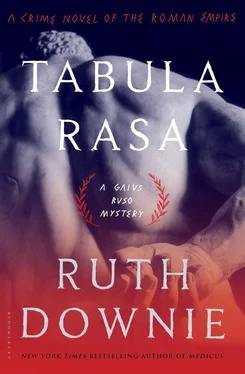


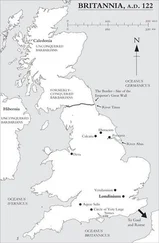
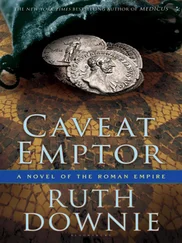
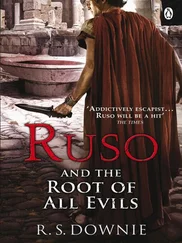
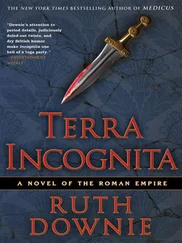
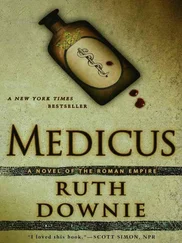
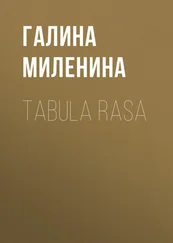
![Антон Архангельский - Tabula Rasa - Исходная точка [калибрятина]](/books/392380/anton-arhangelskij-tabula-rasa-ishodnaya-tochka-k-thumb.webp)


